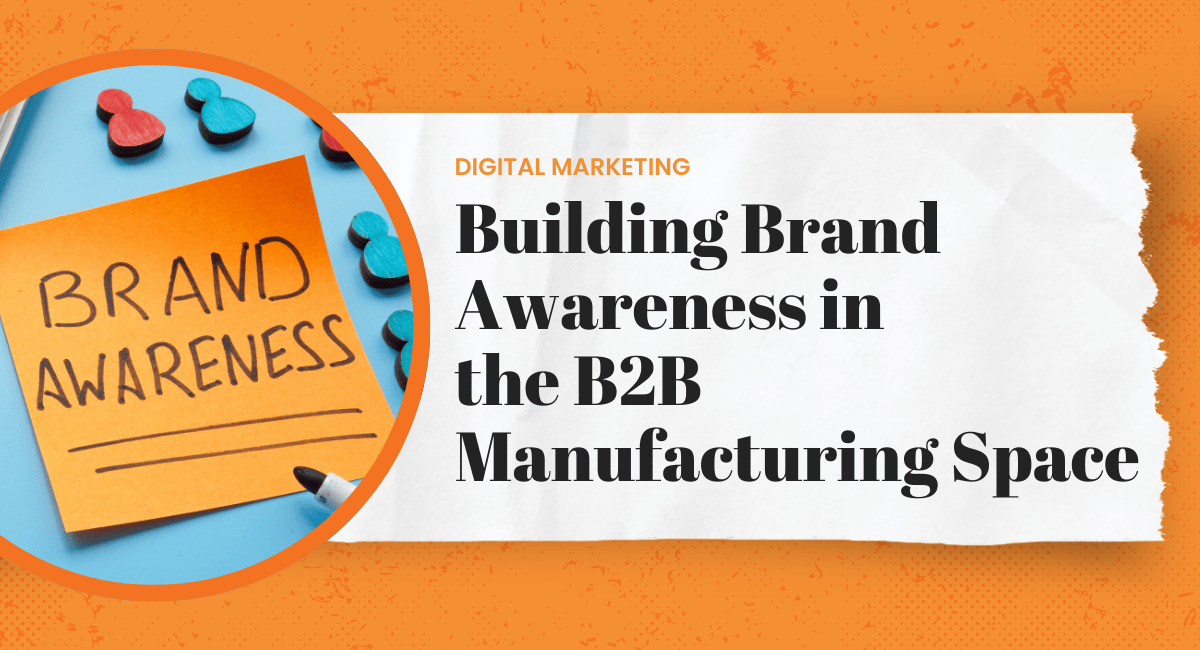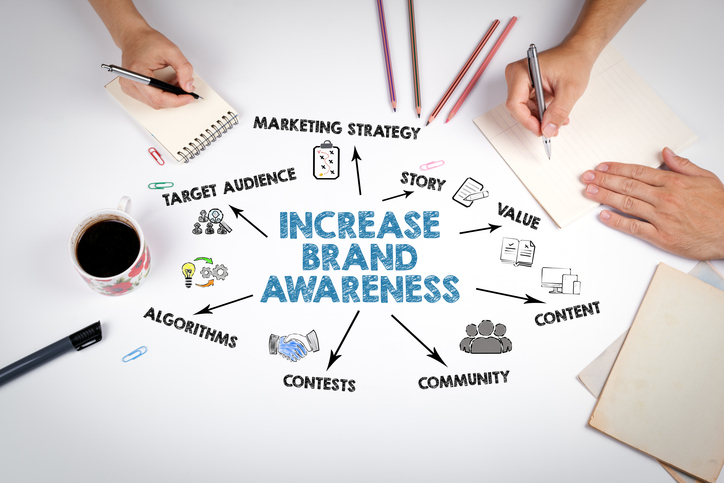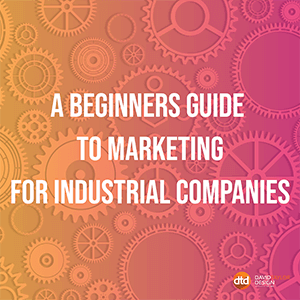
Launching a successful B2B brand awareness campaign isn’t just an option — it’s essential for survival. Manufacturing companies face unique challenges in standing out, especially when traditional word-of-mouth referrals no longer guarantee sustained growth. With 71% of B2B buyers starting their purchase journey with generic online searches, manufacturers who neglect their brand presence risk becoming invisible to potential customers.
The manufacturing sector has experienced a seismic shift in how buyers discover and evaluate potential partners. While your company might excel at producing high-quality products, that excellence means little if decision-makers don’t know you exist. Recent studies show that 75% of B2B buyers use social media to research vendors, and 62% finalize their selection criteria based on digital content alone. These statistics underscore why brand awareness matters more than ever for manufacturers.
Understanding the B2B Manufacturing Marketing Landscape
Today’s manufacturing marketing landscape barely resembles what worked a decade ago. Digital transformation has revolutionized how buyers research, evaluate, and select manufacturing partners. Traditional marketing approaches — trade shows, printed catalogs, and cold calls — while still relevant, no longer suffice as standalone strategies.
Manufacturing companies face several unique challenges in building brand recognition:
- Complex products and services that require technical expertise to market effectively
- Long sales cycles involving multiple decision-makers
- Limited marketing resources and expertise in-house
- Difficulty measuring marketing ROI in relationship-driven sales
- Competition from both local and global manufacturers
The limitations of traditional marketing approaches become evident when examining current buyer behavior. While 83% of manufacturers still rely heavily on trade shows, 70% of B2B decision-makers now prefer digital self-service and remote interactions. This disconnect highlights why many manufacturers struggle to gain traction with conventional methods alone.
Innovative B2B growth hacking strategies have emerged to address these challenges, combining digital presence with data-driven decision-making. The shift toward digital isn’t just about having a website — it’s about creating a comprehensive online presence that engages potential buyers across multiple touchpoints. Manufacturers who embrace this evolution see significantly better results, with digital leaders reporting 5x more revenue growth compared to their peers.
Core Components of a Successful B2B Brand Awareness Campaign
A successful B2B brand awareness campaign in manufacturing requires a multi-faceted approach that combines strategic planning with tactical execution. Let’s explore the essential components that drive real results.
Digital Brand Strategy Development
Your digital brand strategy forms the foundation of your brand awareness efforts. Manufacturing companies need more than just a logo — they need a cohesive digital presence that resonates with technical buyers and procurement teams alike.
Start by defining your unique value proposition. What sets your manufacturing capabilities apart? Whether it’s specialized equipment, unique processes, or industry certifications, articulate these differentiators. Our digital branding services help manufacturers translate complex technical advantages into compelling brand messages that capture attention.
Set specific, measurable brand awareness goals such as:
- Website traffic growth targets
- Social media engagement metrics
- Industry publication mentions
- Download rates for technical documentation
- Email list growth benchmarks
Establish clear brand guidelines that maintain consistency across all channels, from technical documentation to social media posts. This consistency builds recognition and trust with potential buyers.
Content Marketing for Manufacturers
Content marketing for manufacturers differs significantly from B2C content creation. Technical buyers seek detailed specifications, performance data, and proof of capabilities.
Focus on creating:
- Technical white papers and specifications
- Process documentation and capabilities guides
- Engineering case studies
- Industry-specific solution briefs
- Video demonstrations of equipment and processes
- CAD files and technical drawings
Case studies prove particularly effective in manufacturing marketing. Structure them to highlight specific challenges, technical solutions, and measurable outcomes. Include relevant data, specifications, and customer testimonials to build credibility.
Search Engine Optimization
Industrial SEO requires a specialized approach focused on technical terminology and industry-specific search patterns. Unlike consumer searches, manufacturing buyers use detailed, technical terms and specific part numbers. Key considerations for manufacturing SEO include:
- Industry-specific keyword research focusing on technical terms
- Optimization for long-tail technical queries
- Schema markup for technical specifications
- Mobile optimization for on-site engineers and technicians
- Local SEO for regional manufacturing capabilities
Build authority in your niche by creating comprehensive technical content that addresses specific manufacturing challenges and solutions. Focus on demonstrating expertise in your specific manufacturing processes and capabilities.
Search Engine Marketing Benefits
The benefits of SEM for manufacturers extend beyond immediate lead generation. Strategic PPC campaigns can:
- Target decision-makers at specific companies
- Promote specific manufacturing capabilities
- Reach buyers researching technical solutions
- Support new product or service launches
Display advertising helps maintain visibility throughout the long B2B sales cycle. Create technical ads that speak directly to engineers and procurement teams. Use remarketing to stay visible to potential buyers as they research solutions.
Measure SEM success through metrics like:
- Quality of leads generated
- Cost per qualified lead
- Technical document downloads
- RFQ submissions
- Time to conversion
Remember, effective B2B brand awareness campaigns in manufacturing require patience and consistency. Technical buyers often research solutions months before making contact. Each of these components works together to build credibility and visibility in your specific manufacturing niche.
Specialized Marketing Strategies by Manufacturing Sector
Different manufacturing sectors require tailored approaches to brand awareness. Let’s explore specific strategies for key sectors.
Metal Fabrication Marketing
When building brand awareness in the B2B manufacturing space, it’s crucial to address the unique considerations for each specific industry, such as metal fabrication marketing. For metal fabrication, your B2B brand awareness campaign must account for complex technical specifications, quality certification requirements, material expertise, equipment capabilities, and production capacity. Identifying your target audience is essential, focusing on design engineers, project managers, procurement specialists, quality managers, and production planners.
To reach these technical decision-makers, select channels like industry-specific directories, technical forums, professional engineering associations, manufacturing networks, and trade publications. As you develop your messaging, emphasize your company’s technical capabilities, quality control processes, material expertise, production efficiency, and innovation in fabrication.
Custom Manufacturing
Custom manufacturers face distinct challenges when building brand awareness in the B2B manufacturing space. To develop an effective B2B brand awareness campaign, it’s essential to highlight your company’s unique selling propositions around customization capabilities, engineering expertise, prototype development, production scalability, and quality control systems. Showcasing your portfolio requires detailed project specifications, process documentation, quality metrics, timeline achievements, and technical challenges solved. Manufacturing inbound marketing lead generation tactics can include custom capability calculators, design consultation offers, technical specification guides, process comparison tools, and ROI calculators.
When mapping the customer journey for your B2B brand awareness campaign, consider the initial technical research phase, specification development, vendor qualification process, sample or prototype requests, and production scaling considerations. Ultimately, successful B2B brand awareness campaigns in manufacturing require a comprehensive approach that combines broad visibility with deep technical credibility.
Measuring Brand Awareness Success
For a B2B brand awareness campaign to deliver value, you need concrete metrics that demonstrate progress and ROI. Let’s explore the essential elements of effective measurement.
Key Performance Indicators (KPIs)
A successful B2B brand awareness campaign requires precise measurement across multiple channels. Here’s how to track your manufacturing brand’s growth and impact:
- Website Analytics: Track manufacturing sector traffic to understand how your content attracts qualified visitors. Monitor technical content engagement through white paper downloads, webinar participation, and industry-specific resource downloads. RFQ (Request for Quote) submission increases directly indicate your campaign’s impact on lead generation.
- Directory and Industry Presence: Manufacturing directory performance reveals your brand’s visibility in critical industry resources. Track your position and engagement in these platforms to ensure maximum exposure to qualified prospects. Industry publication mentions demonstrate your growing authority — monitor trade journals, technical blogs, and media coverage frequency.
- Digital Engagement Metrics: While some question “is blogging still relevant,” our data shows consistent technical content creates lasting impact. Monitor blog engagement, social media interactions from industry professionals, and email list growth within target manufacturing sectors. These metrics reveal how effectively your B2B brand awareness campaign resonates with decision-makers.
Analytics Tools and Tracking Methods
A robust B2B brand awareness campaign demands sophisticated tracking capabilities across multiple touchpoints. Modern analytics platforms like Google Analytics 4 provide comprehensive website performance data, while LinkedIn Analytics reveals professional engagement patterns within manufacturing sectors.
Professional marketing teams integrate CRM systems with HubSpot partner onboarding solutions to track lead attribution and measure campaign effectiveness. Social listening tools monitor brand conversations across industrial forums and professional networks, while marketing automation platforms measure technical content performance.
Advanced call and form tracking systems capture direct inquiries and technical document downloads, creating a complete picture of prospect engagement. This integrated analytics approach enables manufacturing brands to measure ROI accurately and optimize their market presence continuously.
Reporting and Optimization
Effective reporting drives continuous improvement for your B2B brand awareness campaign. Monthly performance dashboards reveal immediate wins and opportunities, while quarterly trend analysis uncovers deeper patterns in manufacturing sector engagement. Account-based marketing for manufacturers demands sophisticated reporting that tracks content performance across technical specifications, case studies, and industry-specific resources. This data-driven approach measures channel effectiveness, evaluates lead quality from different industrial sectors, and calculates precise cost per acquisition metrics.
Top manufacturing brands leverage these insights to refine their market positioning, enhance technical content strategy, and optimize resource allocation for maximum ROI. Regular performance analysis ensures your manufacturing brand maintains competitive advantage while building lasting relationships with qualified prospects in your target sectors.
ROI Calculation
A successful B2B brand awareness campaign transforms marketing metrics into tangible business growth. Manufacturing companies that want to know how to increase ROI start with lead quality metrics, tracking improvements in prospect qualification rates and decision-maker engagement. Strategic brand initiatives accelerate the sales cycle through enhanced market recognition, while systematic tracking reveals market share expansion through increased industry presence.
Quantifiable metrics include significant upticks in qualified quote requests, higher website conversion rates among technical buyers, and strengthened industry authority measurements through speaking engagements and publication mentions. This comprehensive ROI framework helps manufacturing leaders connect marketing investments directly to revenue growth, creating a clear path between brand building efforts and bottom-line results. Manufacturing companies leveraging these metrics typically see enhanced competitive positioning and stronger market penetration in their target sectors.
Common Pitfalls to Avoid
Steer clear of these common mistakes that can derail your B2B brand awareness campaign:
| Inconsistent Branding | Neglecting Digital Presence | Poor Content Strategy | Ineffective Measurement |
|
|
|
|
Conclusion
A well-executed B2B brand awareness campaign transforms manufacturing companies from unknown entities into recognized industry leaders. Today’s digital landscape offers unprecedented opportunities for manufacturers to showcase their expertise, connect with decision-makers, and build lasting brand recognition. Success requires a strategic combination of technical content, digital presence optimization, and consistent measurement.
The manufacturing sector continues to evolve, with buyers increasingly relying on digital channels for vendor research and selection. Companies that invest in comprehensive brand awareness campaigns position themselves at the forefront of their industry, capturing attention and building trust long before the first sales conversation begins. Remember, brand awareness in manufacturing isn’t just about visibility – it’s about establishing your company as the go-to expert in your specific niche.
Ready to Transform Your Manufacturing Brand’s Digital Presence?
Don’t let your manufacturing company get lost in the digital landscape. Partner with David Taylor Digital to create a powerful B2B brand awareness campaign that drives real results.







